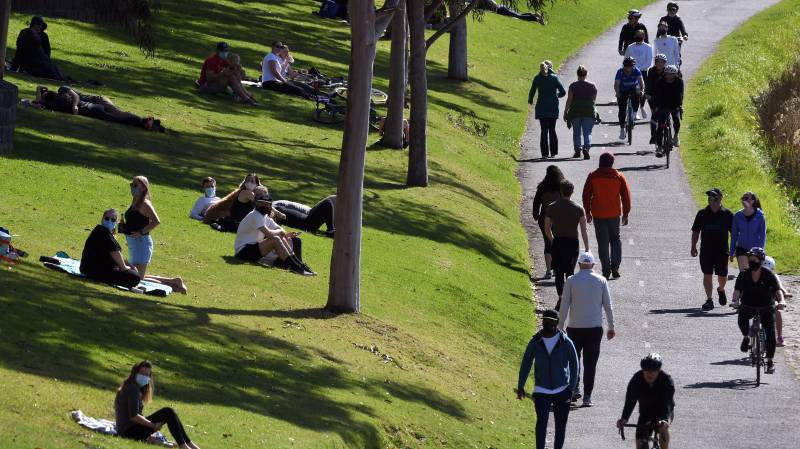Virus cases in hard-hit Australian state reach lowest in months

Stay tuned with 24 News HD Android App

Five million residents in Australia's second biggest city emerged from an almost two-month overnight curfew on Monday as just five new coronavirus cases were recorded in worst-hit Victoria state.
The figure was the lowest daily rise in infections in Victoria since June 12 and came as residents of the state capital Melbourne saw a raft other virus restrictions also eased.
Curbs on industries such as construction and manufacturing have been lifted in Melbourne, with childcare centres reopening and small religious services allowed to resume.
Victorian Premier Daniel Andrews said the downward trend in new cases was "very, very significant", suggesting more restrictions would be eased if it continued. "We are so close to being able to take a really big step -- big step towards that Covid normal," he told a press conference.
Despite the lifting of the curfew, Melbourne residents remain subject to a stay-at-home order and are only allowed to travel within a radius of five kilometres (three miles) for a limited number of approved activities.
Non-essential businesses are still banned from reopening, with restaurants only available for takeaway, a rule that has caused angst among many owners. On Monday, a Victoria state judge was scheduled to begin hearing a case challenging the validity of lockdown measures -- specifically the now-scrapped curfew -- reportedly brought by a cafe owner frustrated by plummeting revenues.
Melbourne became the epicentre of Australia's second wave after security bungles led to the virus escaping from hotels used to quarantine travellers returning from overseas. Overall, Australia has been relatively successful in curbing the spread of Covid-19, with just over 27,000 cases and 875 deaths in a population of 25 million.
Most regions are now reporting few or no new daily infections, allowing restrictions to be rolled back across much of the country. The nation has maintained strict controls over its international borders, with limits on the numbers of citizens who can return from overseas and a ban on leaving.
